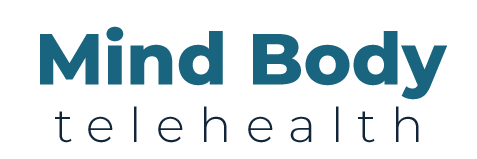There is an old question: “do you think the cup is half full or half empty”? The presumption is that the answer is arbitrary and based on whether a person is an optimist and thus says the cup is half full, or a pessimist and thus says the cup is half empty. There is actually an answer to the question that is not arbitrary. We start with the question of the purpose of a cup and the answer is “to hold liquids”. If this is the cup’s purpose, the most relevant answer is to describe how much of this purpose is being served, that is, it is half full of liquid. While it is technically true that the cup is half empty, it would not be as relevant or useful to describe how much the cup is not serving its purpose.
When the purpose of something is determined, it make the most sense to describe to what degree its purpose is being fulfilled, rather than how much its purpose is not being fulfilled. The purpose of a fundraising campaign is to raise a million dollars for charity, so it makes more sense to say it raised $750,000 at this time. One would not ordinarily lead with the statement that the campaign has not raised the remaining $250,00 at this time, although that is technically correct. The psychology of this difference is related to the finding that describing events in a positive way is more motivating than describing it in a negative way. For example, people would probably be more likely to give donations to a campaign that “has raised $750,000”, wanting to join in the successful effort, than to a campaign that “has not raised the remaining $250,000”. The purpose of a pilot is to log miles flying in the sky, so one would say “John has logged 20,000 miles flying this year”, or “John has flown 165 days this year” and would not describe how much John has been on the ground, not flying. “John has not flown 200 days this past year” would not be a good way of describing to what degree John is fulfilling his purpose as a pilot.
I believe that the purposes of our lives on Earth is to be found in such statements as “to be peaceful”, “to be loving”, “to be happy”, “to learn life lessons”, and “to be joyful”. As a therapist, I have often been asked to describe clients using the negative terms found in our diagnostic system: they are “depressed”, they are “intellectually challenged” (what used to be called mentally retarded), they are “anxious”, or they are “psychotic”. Although it would be technically correct to say that clients want to be less depressed, less intellectually challenged, less anxious, or less psychotic, it is more helpful to say that they want to be joyful or happy, to be able to learn things better, to be calmer, and or to be able to recognize what is actually happening in their lives. When the negative aspects of life are emphasized, they seem to increase or get worse. When the positive aspects are emphasized, they seem to increase or get better. The guiding principle here is: “what we focus on, expands” (Wayne Dyer). Such efforts as the “war against drugs” or the “war against poverty” only seem to make things worse, as opposed to efforts to help others to find pleasure and joy through natural means, or efforts to increase their financial well-being.
In therapy, it is much more helpful to minimize the attention paid to negative symptoms such as depression and anxiety and increase the attention paid to positive goals for clients, such as an increase in pleasure or joy or an increase in the ability to remain calm and peaceful when in stressful situations. Clients receive assignments such as “find and practice three activities that bring you pleasure or joy” or “practice relaxation breathing and utilize it when in stressful situations”. Clients find this approach more motivating, because it is demoralizing to focus on how often negative symptoms are occurring. The negative approach is also not as helpful for making changes. If we were given the assignment: “do not think about white elephants” we would find this extremely difficult, but would find it much easier if we were assigned the task “think about gray elephants”. Our minds function better when asked to focus on events that are occurring, rather than when asked to focus on events that are not occurring.
Clients often say that they would like to be happier, but have no idea of how to accomplish this positive goal, so they are more likely to measure their progress in therapy in terms of being less miserable. Another post will focus on the nature of happiness and how most efforts to achieve happiness in our lives are misguided and thus ultimately unsuccessful.

